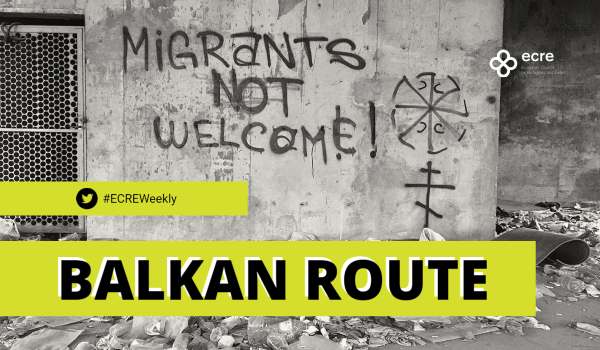Hungary is increasing the height of its fence with Serbia amid ongoing violence towards people on the move along the Balkan route. Serbia’s capital Belgrade is crucial transit city with hostile conditions towards refugees.
Hungary decided to make the fence along its border with Serbia higher amid reports of an increase of pushbacks and violence by Hungarian authorities notorious for their systematic abuse and pushbacks of people on the move. In a statement released on 31 October, Hungary is introducing this measure “so that Europe does not have to bring back internal border controls”. If Hungary did not protect its border, numerous European countries would have to reinstate checks on their borders, which would not only be an inconvenience when travelling but would also hurt the European economy,” said State Secretary Bence Rétvár. The Czech Republic extended control checks on its border with Slovakia for another 45 days to counter an increase in migration on the Balkan route. In the meantime, people continue to use the Balkan route passing through Serbia as a transit country to cross to “core” EU member states despite measures aimed at curbing migration. According to estimates by NGO Klikaktive, almost 90,000 people have entered Serbia since the beginning of 2022, compared to 60,338 for all of 2021, according to combined data from the UN Refugee Agency (UNHCR) and the Commissariat for Refugees and Migration of the Republic of Serbia (KIRS). For these people, Serbia’s capital Belgrade is “a crucial but hostile layover city”. The city allows migrants to pause for a few days from a perilous journey that subjects them to physical and verbal violence before attempting to reach the EU. An asylum seeker revealed to Info Migrants how border guards physically abuse migrants on the borders of Greece and Turkey and between Serbia and Bulgaria, saying: “When the police catch people there, they beat them up. A friend of mine was hit so hard on his head, he later went crazy”. However, Belgrade is not a “good place to rest” as asylum seekers have limited accommodation options such as overcrowded and remote camps, or the streets, abandoned buildings or parks of the city. As temperatures are dropping, a joint action organised by refugee support collectives including Collective aid, Frach collective, Klikaktive and No Name Kitchen to equip abandoned or demolished buildings and squats, where many migrants shelter, for the winter. In their action statement, the collectives said: “We condemn all violence against PoM, we condemn human rights violations by EU member states and agencies! We fight against borders and for freedom of movement for all”.
For further information:
- ECRE, Balkan Route: Commission Increases Support to Tighten Border Control in the Western Balkans Amid Increase in Violence and Pushbacks, October 2022
- ECRE, Balkan Route: New Violent Tactics of Pushbacks Across the Region, CJEU Finds Hungary in Violation of EU Law, Frontex to Operate In North Macedonia Despite Allegations of Complicity in Pushbacks, October 2022
This article appeared in the ECRE Weekly Bulletin. You can subscribe to the Weekly Bulletin here.

